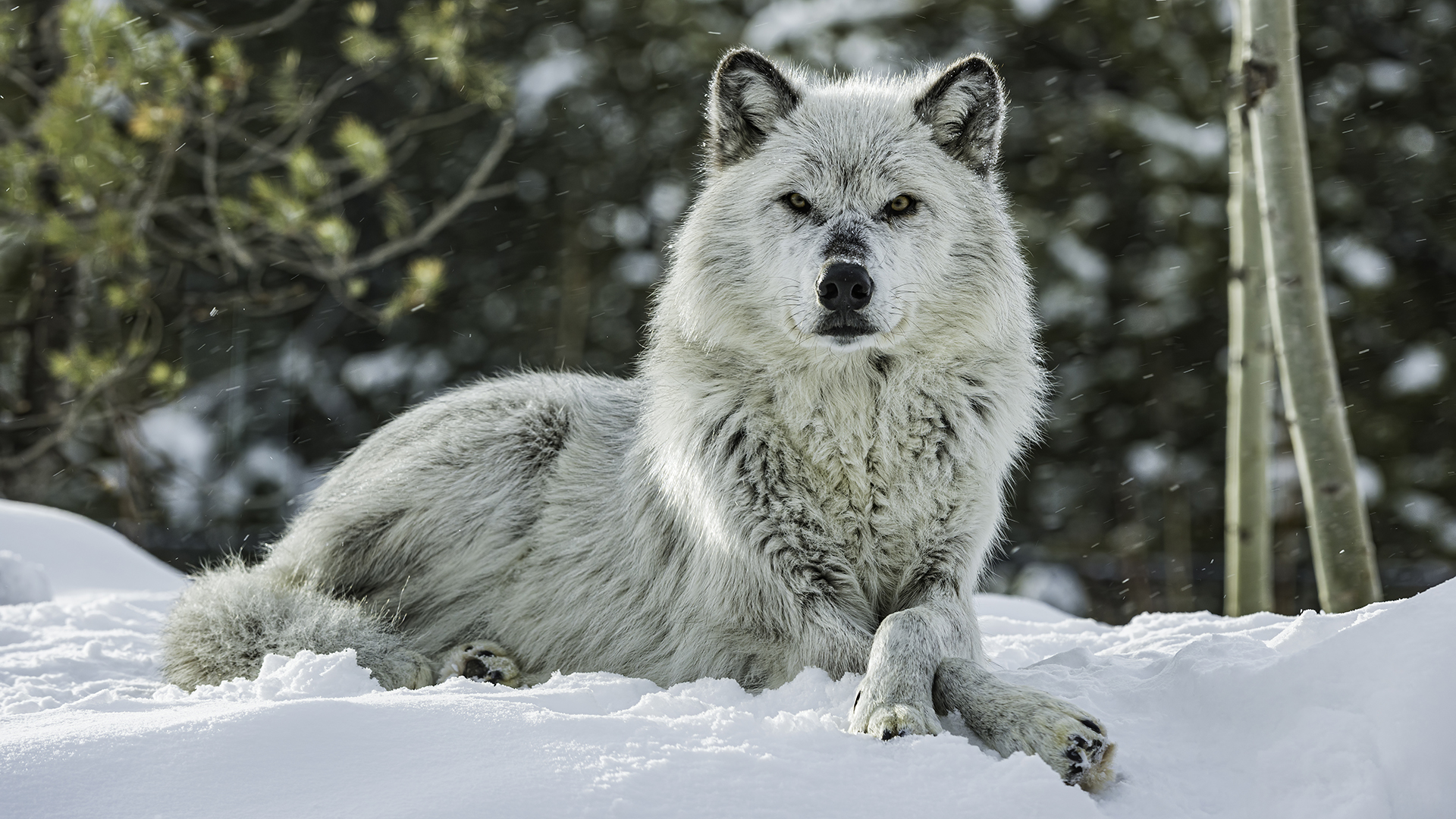Mind-controlling parasite turns wolves into pack leaders
A parasite that can alter animal behavior is changing the habits of infected wolves in Yellowstone, increasing aggression and goading them into taking greater risks.

Wolves infected with behavior-altering parasites are more likely to become pack leaders, or abandon their packs altogether, according to an analysis of more than 200 gray wolves in Yellowstone National Park. The findings add to a growing body of evidence that Toxoplasma gondii, a single-celled parasite, pulls on the puppet strings of its hosts, goading them into pursuing risky behaviors.
"We identified a substantial increase in the odds of dispersal and of becoming a pack leader, both risky behaviors," in wolves that showed signs of T. gondii infection in their blood, the authors wrote in the study, published online Nov. 24 in the journal Communications Biology.
"These two life history behaviors represent some of the most important decisions a wolf can make in its lifetime and may have dramatic impacts on gray wolf fitness, distribution" and the overall rate of births and deaths within a population, the scientists reported.
Toxoplasmosis — the disease caused by a T. gondii infection — is everywhere. While T. gondii can only sexually reproduce and complete its life cycle in felids (members of the cat family), it is perfectly at home in any warm-blooded host — including about 33% of all humans and more than 10% of the U.S. population. A healthy immune system is usually enough to keep the disease’s symptoms at bay, and people who are not immunocompromised seldom experience anything more daunting than minor flu-like symptoms during acute infection. But T. gondii can have a lasting impact; a handful of studies have found that chronic infection can lead to increased testosterone levels and behavioral changes in humans.
Related: The weird tale of a larger-than-life wolf that outran the law, almost
And we're not alone. Rodents infected with the parasite produce a surplus of testosterone and are less afraid of cats, Live Science previously reported. Hyenas with toxoplasmosis are more likely to tussle with African lions, according to a 2021 study published in Nature Communications; and chimpanzees carrying T. gondii are unafraid of leopards, their natural predators, scientists reported in 2016 in the journal Current Biology.
Yellowstone's gray wolves became acquainted with T. gondii by wandering the same volcanic wilderness as infected cougars (Puma concolor) and eating feline feces, according to the new study. The researchers examined nearly three decades’ worth of data on wolves that had been captured, released and monitored at Yellowstone. They discovered that infected wolves were more likely than uninfected wolves to engage in risky behaviors, such as abandoning their families to start new packs, and were twice as likely to assert themselves as pack leaders, which often entailed picking perilous fights with other would-be top dogs.
Get the world’s most fascinating discoveries delivered straight to your inbox.
But toxoplasmosis is not all glory, independence and power struggles. Pregnant wolves suffering acute infection can miscarry a litter, and wolves that are unafraid of a fight are more likely to suffer fatal injuries. The study authors also raised the possibility that infected wolves put the entire pack at risk by fearlessly leading fellow wolves into cougar territory where they too may become infected.
"This study demonstrates how community-level interactions can affect individual behavior and could potentially scale up to group-level decision-making," the authors wrote. "Incorporating the implications of parasite infections into future wildlife research is vital to understanding the impacts of parasites on individuals, groups, populations, and ecosystem processes."

Joshua A. Krisch is a freelance science writer. He is particularly interested in biology and biomedical sciences, but he has covered technology, environmental issues, space, mathematics, and health policy, and he is interested in anything that could plausibly be defined as science. Joshua studied biology at Yeshiva University, and later completed graduate work in health sciences at Cornell University and science journalism at New York University.
 Live Science Plus
Live Science Plus





